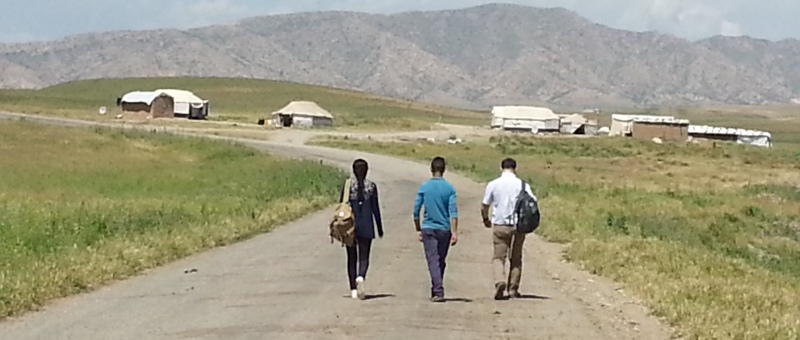This presentation was given by Karen Lauterbach at the Refugee Hosts International Conference. The paper is about refugee-refugee hosting in a faith-based context and examined how refugee churches hosting refugees invoke ideas of compassion and sacrifice in these hybrid forms of hosting. 'A Refugee Pastor in a Refugee Church': Refugee-Refugee Hosting in a Faith-Based Context by…
Tag: faith based humanitarianism
‘A Refugee Pastor in a Refugee Church’ – Hybrid Forms of Faith-Based Hosting in Kampala, Uganda
What insights into ideology, relationality and hierarchy can we gain by examining the role of faith in displacement, and in the acts of hosting and being hosted? In this post, Karen Lauterbach (University of Copenhagen) discusses hybrid forms of faith-based hosting and draws on her research with Congolese refugee churches in Kampala, Uganda. Lauterbach examines…
Three ways that Religion Matters in Responses to Refugees
How and why does religion matter in response to forced migration? On Friday 10th May 2019 the Refugee Hosts’ team co-convened a workshop with colleagues from Yale, as part of our British Council-funded Bridging Voices project, to examine the role of religion in forced displacement. The Bridging Voices project, and our recent workshop, brings our Refugee Hosts…
Barriers to Localisation: Making the Invisible Visible
Despite international support for the 'Localisation of Aid' Agenda, working with 'the local' remains not only challenging, but also frustrating for many international organisations. As Kathleen Rutledge explains in this piece, this frustration stems from a variety of sources, from a sense that the local is frequently 'less professional', to a degree of mistrust about…
In God We Trust: Faith communities as an asset to refugee youth in the United States
Faith plays a crucial role for many displaced people, providing spiritual sanctuary in contexts of overarching insecurity. Whether this comes in the form of organised, local level faith groups - such as those that may gather in mosques or churches - or in the stories and ceremonies of faith-based practices, faith can enable spiritual resilience…
Turkey – Crossroads for the Displaced
The conflict in Syria has entered its seventh year. In this time, millions of refugees from Syria have travelled through - or have become stuck in - Turkey, a country that has in turn been shaped by recent political flux. From this position, refugees from Syria - and the NGOs, faith groups and agencies that seek…
How to Overcome Religious Prejudice among Refugees
Religious tensions between diverse refugee communities in Jordan, Turkey and Lebanon present challenges to those affected by displacement, exposing some to faith-based discrimination. In other instances, (perceived) markers of religious identity expose refugees to discrimination, both from state officials, and members of the host community too. However, as Kat Eghdamian (UCL) argues in this piece (originally…
When Local Faith Actors Meet Localisation
Efforts to bring local faith actors (LFAs) into the wider humanitarian apparatus have been a key aim of the localisation of aid agenda. In this piece, Olivia Wilkinson (Director of Research of Refugee Hosts' research partner, the Joint Learning Initiative on Local Faith Communities) argues that there is a need to ensure that such engagements provide space…
Does Faith-Based Aid Provision always Localise Aid?
Attempts to localise humanitarian responses have resulted in a growing awareness on the part of international actors of the opportunities that come from working with local faith communities (as explored on Refugee Hosts here, here and here). However, as Estella Carpi argues, there is a need to reflect on local contexts to ensure that engagements with…
New Grant: Religion and the Promotion of Social Justice for Refugees
Religion and the Promotion of Social Justice for Refugees The Refugee Hosts team is honoured to have been awarded a Bridging Voices grant by the British Council-USA (generously funded by The Henry Luce Foundation) in collaboration with four US-based colleagues affiliated with the Program on Refugees, Forced Displacement, and Humanitarian Responses at Yale University. Led by…









You must be logged in to post a comment.